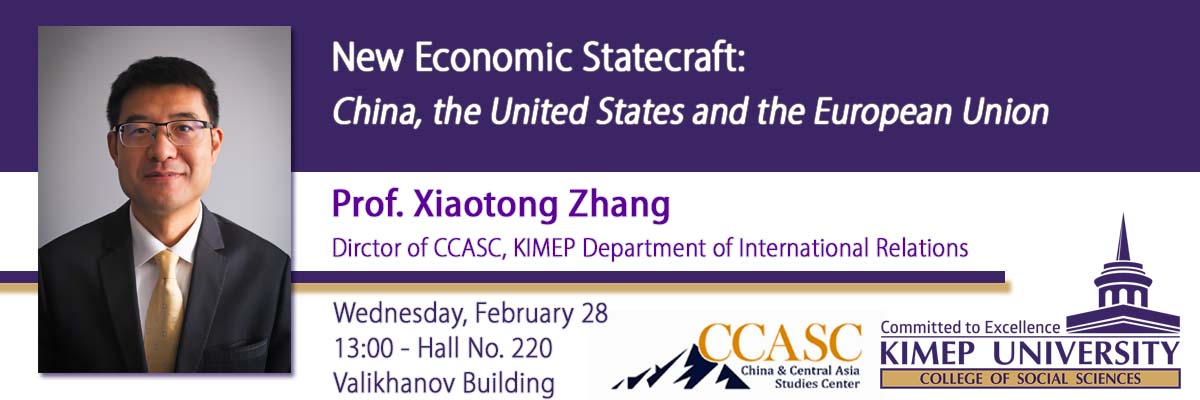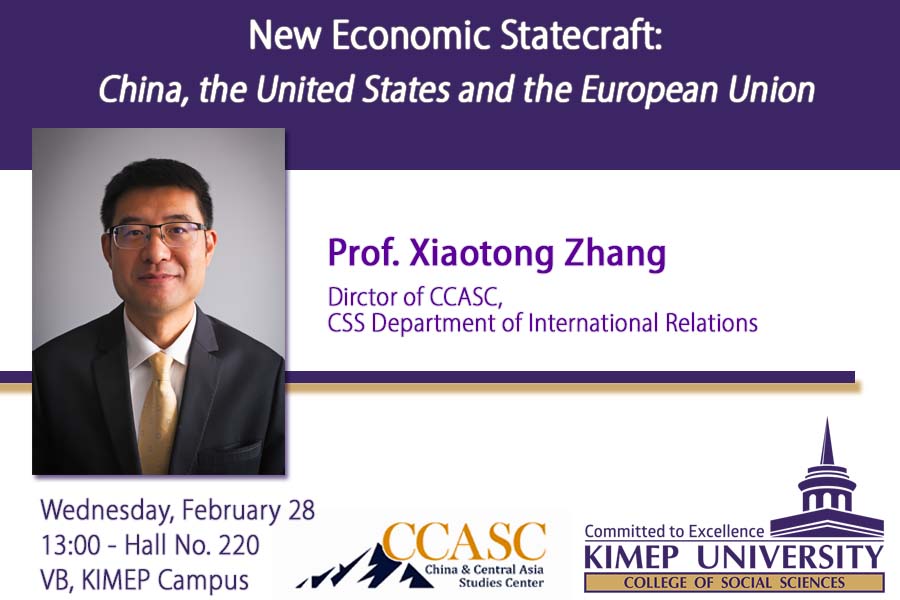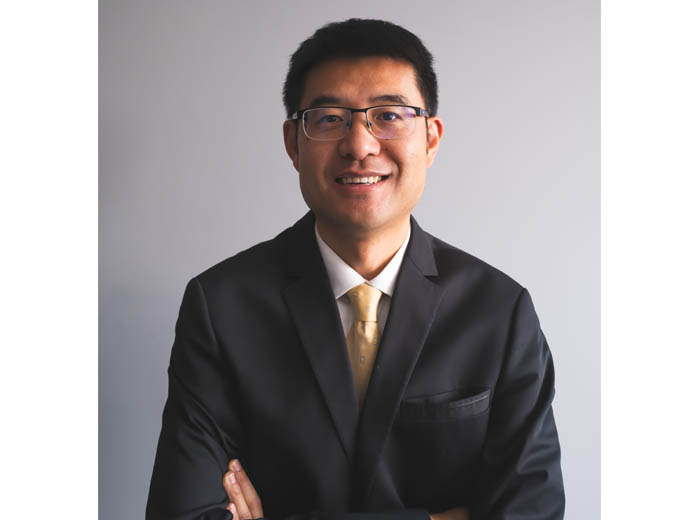
Professor Xiaotong Zhang, Academic Director of CCASC, will hold a public lecture titled "New Economic Statecraft: China, United States, and the European Union" on Wednesday, February 28. The lecture will take place at 13:00 (7:00 UTC) in Hall No. 220, Valikhanov Building, and it will be streamed on Zoom.
In this lecture, Prof. Zhang will talk about his re-conceptualization of economic statecraft in his new book of the same title, proposing a new theory focused on wealth–power conversion and the understanding that economic statecraft is all about how to convert a state’s wealth into its power, or vice versa.

This is a Past event. Watch a video recording on YouTube:
The topic has become a fashionable research subject in the global geopolitical context, especially following the US-China Trade War in 2018 and the West’s economic sanctions against Russia after Russia’s invasion of Ukraine in 2022. With a long historical perspective, the "Economic Statecraft" goes through the modern history of Western powers practicing economic statecraft since 1500, and presents three case studies, the United States, the European Union, and China, which are the biggest practitioners of economic statecraft in the contemporary world. Additionally, Professor Zhang will discuss Kazakhstan’s economic statecraft in the new geo-economic world.

About the Speaker:

Professor Xiaotong Zhang is the Academic Director at CCASC. He is a Professor in the Department of International Relations and Regional Studies at KIMEP University and serves as the Editor-in-Chief of “Economic Diplomacy”, a peer-reviewed international journal. Previously, he founded the Wuhan University Centre for Economic Diplomacy during his tenure as a Professor of International Relations at Wuhan University. His primary research areas include economic diplomacy, geopolitics, European studies, and US-China relations. His most recent publications are “New Economic Statecraft: China, the USA, and the EU” and “Linkage Power Europe: the EU’s Trade Negotiations with China”. He earned his Ph.D. from the Université Libre de Bruxelles (ULB) in Belgium.

